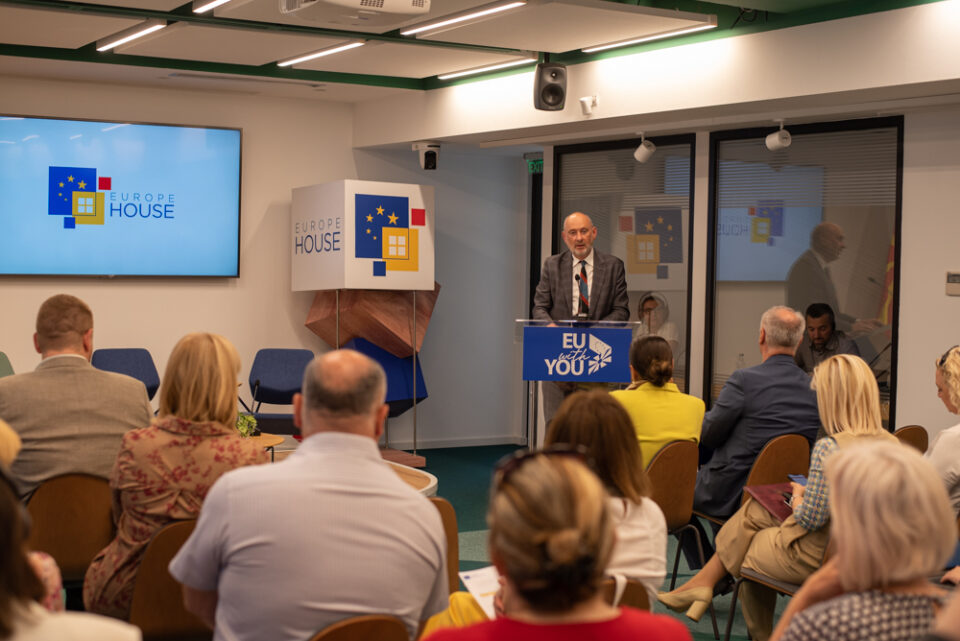Wednesday marked the closing of the EU-funded project “EU for Human Rights: Mainstreaming non-discrimination concepts in legislation” with an analysis on the basis of which amendments are made to five bills, aimed improving the legislation on discrimination.
These include amendments to the draft law on criminal procedure, draft criminal code, the draft law on labor relations, draft law on gender equality and the law on prevention and protection against discrimination, as well as draft guidelines for state authorities on promotion and advancement of equality and prevention of discrimination.
Minister of Labor and Social Policy, Jovanka Trenchevska, told the event in Europe House that the challenges related to respecting the principles of non-discrimination are aimed at the promotion and implementation of the anti-discrimination law and greater independence and functionality of the Commission for Prevention and Protection against Discrimination, overcoming the current shortcomings and implementing harmonization of the legislation with the law.
According to Ziberi, the country is moving forward in terms of improving protection against discrimination, following trends and managing to harmonize the legal framework with all directives and rules of the European Union.
According to her, in order to fully meet the purpose of this law to ensure the principle of equality and prevention and protection against discrimination in the exercise of human rights and freedoms, we need to jointly contribute and work a lot more and spread those principles in every sphere of society.
“The need to further harmonize other laws in line with Article 48 of the law on prevention and protection against discrimination is of great importance and remains one of the priorities that will enable further establishment of the principles of equality and non-discrimination in social processes,” she said.
EU Ambassador David Geer said greater equality increases social harmony and stability.
“Every successful society rests on the equality of all citizens. The question is not who am I, but what do I do? Where are my talents and what can it contribute to my community and society,” he said.
Ambassador Geer pointed out that any reform should be accelerated and harmonized with EU standards as best as possible, because EU membership is conditioned by reforms.
Ombudsman Naser Ziberi noted that an analysis has been conducted through the project on the basis of which amendments to five bills have been made, aimed at undoubtedly improving the legislation that refers to discrimination
“The state can create a legal framework perfect in every field. The hard part is its application. The increase in awareness of employees in the public sector and of the citizens themselves in the perception and their attitude towards those who are different from them,” he pointed out.
The aim of the event is to discuss the situation and practices for dealing with discriminatory cases, as well as present the activities implemented by the project with accent on key results and legal revisions developed in accordance with the project’s key objectives: alignment of the national legislation with the EU acquis on Anti-discrimination, harmonization of laws in line with Article 48 of the Law on Prevention and Protection against Discrimination (LPPD), and strengthening the capacities of national authorities and policymakers for prevention and protection against all forms of discrimination.
The opening remarks were followed by a panel discussion with representatives from the Commission for Prevention and Protection against Discrimination, NGO Polio Plus and project’s experts.





Comments are closed for this post.